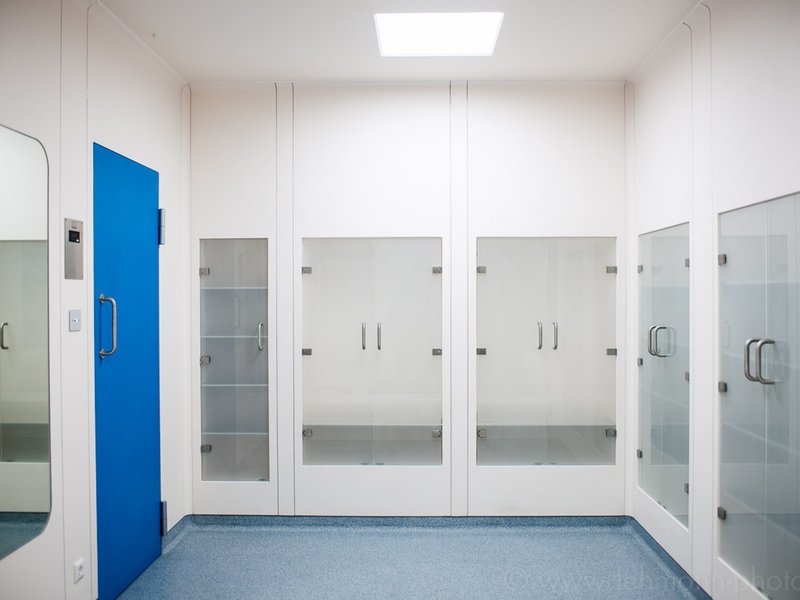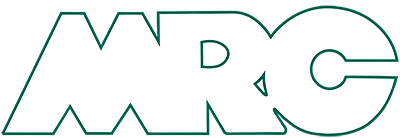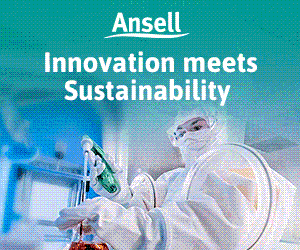Companies with cleanroom operations are looking at the Middle East for a very good reason. Since 2015, in the wake of plummeting oil prices, the United Arab Emirates (UAE) and Saudi Arabia have been trying to keep their markets strong by turning into competitive manufacturing hubs. The strategy is built on long-term plans for big-ticket investments in pharma and hi-tech industries.
The Dubai Industrial Strategy (DIS) is one such example. Launched in June 2016, the DIS focuses on furthering six segments, including aerospace, healthcare and food, to increase the total output and value addition of these sectors, so Dubai can become a preferred platform for global businesses. The strategy is projected to help generate Dh160 billion (US$43bn) by 2030.
Establishing the Dubai Science Park (DSP) was also a move to boost the economy and the life sciences segment in particular. Established in 2015, the DSP is the region's first free zone community serving the entire value chain, offering research and laboratory facilities to lure biotech companies, large and small, into the region.
The strategy is bearing fruits. Last April, US-based plasma and biotech firm CSL Behring inaugurated its regional HQ there, following Dubai's Pharmax who spent Dh125m ($34m) for a custom-built facility that entered operation in August 2018. Pharmax said its annual capacity exceeded 200 million oral solid dosage forms (OSDs), with plans to increase to over 800 million by 2023. Eppendorf, the German lab equipment-maker, launched its pipette service centre at DSP three months before Pharmax.
Multimillion-dollar deals
In Saudi Arabia, the region's largest sovereign state, the turnover of the pharma market reached $8.2bn in 2018; OSDs accounted for $3.5bn and biological and biosimilar drugs $1.6bn. But, the proportion of local drug manufacturing is only 20%, so the National Transformation Programme (NTP) was launched to increase production up to 40% by the end of 2020. Measures to achieve this include the streamlining of regulatory processes and price protection for locally produced medicines.
The region's openness to import and desire to up local products and services make it a very competitive platform for business
The NTP is part of the Kingdom's Vision 2030, a scheme to diversify the economy and promote greater private sector involvement. Crown Prince Mohammad Bin Salaman revealed in October that the current wave of privatisations, worth 2bn riyals ($533m), will finalise by the end of 2019.
Hand-shakes on healthcare deals have already happened. The SAR6bn ($1.62bn) agreement between Abu Dhabi-based NMC Health and Saudi investment firm Hassana will see the former acquire and develop facilities in the country. Last October, Munich-based Siemens Healthineers entered a 10-year strategic partnership with Dallah Health for the installation, maintenance, upgrade and replacement of medical imaging equipment as well as training for the biomedical and clinical teams.
Swiss CDMO Lonza is one of the few pharma giants already tapping into this market
Interest in this market has sparked in Latin America, and the Brazil-Saudi Arabia Pharma Seminar, held in São Paulo in October, proves it. "The Saudi government makes purchases and invests in goods and services. It's a big market where 70% of products are imported," Adalberto Netto told ANBA, the Brazil-Arab news agency. Brazilian-born, Netto is based in Riyadh, working on international investment promotion initiatives.
Besides the oil-rich countries, Israel is a market that appeals to cleanroom services due to its emerging innovative start-ups. Swiss CDMO Lonza is one of the few pharma giants already tapping into this market. Its Collaborative Innovation Center (CIC) opened in the Haifa Life Science Park a year ago. The 1000 sqm facility features lab space equipped with cutting-edge bioprocessing and analytical equipment for partners as a testbed for new ideas and technology. Haifa is also home of the Technion Israel Institute of Technology and both IBM and Intel's research and development centres.

MRC Systems project for AqVida
Cleanroom experts have their say
Micronclean, the UK's cleanroom consumables and garments laundry specialist, has seen the enormous potential in the Middle East, and just started trading in the region. "We have appointed a distributor in the UAE to look after Saudi Arabia, the UAE and Oman." Export Manager Jon Horton, tells me. "We have a distributor in Israel and we will look to appoint a suitable distributor in the other Middle Eastern countries," he adds. For Horton, patience is key to business success in the region. "The Middle East is all about relationships and spending time in the market," he says.
Samuel Hussain, Global Sales Manager at MRC Cleanroom Systems, concurs. "There are cultural differences like any other region in the world," he says, "but from a fundamental level, you need to have presence within the region and you need to have multilingual capabilities within the company." Hussain has seven years' work experience in the Middle East, while MRC has been in the region with an office and factory in Dubai for the last 20 years. "Developments are ambitious yet realistic in the Middle East," he comments. "Our products and services cater to some of the focus areas of this growth: renewable energy, healthcare, education, aerospace and more. We have found demand has increased over the years," he points out.
MRC's Hussain says companies need to be able to present true value in their products, noting that companies and individuals in the region have solid technical understanding and vast experience with suppliers and partners across every continent.
The Middle East is all about relationships and spending time in the market
Doing business in the region has nothing to do with the styles and approaches known in the US and Europe, as Hasim Solmaz, General Manager at Lighthouse Worldwide Solutions (LWS) EMEA Operations, explains: "[The Middle East] has its own dynamics and is quite tentative. [There are] family-owned companies and government-supported organisations. For [overseas] companies, dealing and keeping these partners/distributors engaged is challenging."
Solmaz also points out to the employment landscape as a differential factor. "Most of the employees in countries like Saudi Arabia and UAE are from abroad (Pakistan, India, Thailand), which can cause a lack of engagement and sustainability," he says, noting that in these countries, to establish a limited liability company, at least half of the shares should be owned by an Emirati/Saudi businessman; it doesn't matter if he is involved in the business.
Challenges and opportunities
Besides the cultural nuances, there is tough competition. "We are competing against not only other local companies but also companies across Asia, Europe and further afield," says MRC's Hussain. "The regions openness to import as well as the desire to encourage local products and services make it a very competitive platform to do business," he adds.
Micronclean's Horton points to the regulatory updates as a factor of opportunity. "The market is developing in terms of regulations, so getting into these markets now is paramount if we want to lead the way in the market with our innovative products," he says.
UAE, Saudi Arabia and Israel as top tier markets
For LWS' Hasim, both challenges and opportunities in the region are in the three best-performing Middle Eastern economies. He names UAE, Saudi Arabia and Israel as top tier markets. "Industries are quite volatile and dependent on oil prices," he says. "Chinese brands are quite popular in these markets since the 2014 recession," he adds. Hasim notes these countries are eager for technologies, offering incentives to international key accounts. "This can bring a new wave of investments and new potentials to the market," he says.
Without a doubt, high-end engineering industries are beacons in the market. "There is an inherent ambition for homegrown talent, which in turn will bring research and development projects, furthering manufacturing capabilities in the local markets," says MRC's Hussain. "It's an opportunity and a challenge for local companies here to keep up with the region's developments, ensuring that their products and services develop at the same rate," he concludes.
N.B. This article is featured in the November 2019 issue of Cleanroom Technology. Subscribe today and get your print copy!
The latest digital edition is available online.







